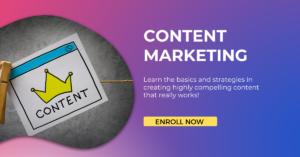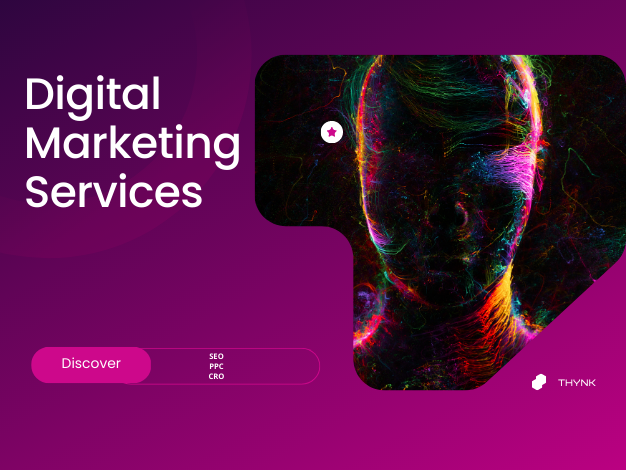The Best Digital marketing services
Digital marketing services are services that assist companies advertise their goods or services online through different digital media. Some of the most typical digital marketing services include:
-
Search engine optimization (SEO):
This entails improving a website to rank better in search engine results pages (SERPs) for relevant keywords.
-
Pay-per-click (PPC) advertising:
This includes putting advertisements on search engines, social media platforms, and other websites, and paying each time someone clicks on an ad.
-
Social media marketing:
This entails advertising a business’s goods or services via social media platforms such as Facebook, Instagram, Twitter, and LinkedIn.
-
Content marketing:
This entails generating and distributing useful, relevant, and engaging material to attract and maintain a target audience.
-
Email marketing:
This entails sending emails to a business’s subscribers to advertise goods or services, establish connections, and enhance brand recognition.
-
Conversion rate optimization (CRO):
This entails improving a website or landing page to enhance the proportion of visitors who do a desired action, such as completing a purchase or filling out a form.
-
Marketing automation:
This entails utilizing software to automate repetitive marketing processes, such as email campaigns, social media posting, and lead nurturing.

Digital marketing SEO
Overall, digital marketing services assist firms to engage with their target audience, build brand recognition, and generate sales and income via online channels.
Digital marketing SEO (Search Engine Optimization) is a significant aspect of digital marketing. It refers to the activity of optimizing a website and its content to rank better in search engine results pages (SERPs) for relevant keywords. When a website ranks better in SERPs, it might attract more organic traffic and prospective consumers.
SEO encompasses a range of approaches, such as optimizing website content for important keywords, boosting website speed and mobile-friendliness, establishing high-quality backlinks to a website, and enhancing user experience. The purpose of SEO is to deliver the greatest possible user experience for website visitors while simultaneously making it simple for search engines to crawl and index the website’s content.
Some of the most essential things that affect SEO include:
- On-page optimization: This involves optimizing website content, titles, meta descriptions, headers, pictures, and other aspects.
- Off-page optimization: This involves generating high-quality backlinks from other websites to boost the website’s authority and relevance.
- Technical optimization: This involves enhancing website performance, mobile-friendliness, and ensuring that search engines can easily crawl and index the website.
- User experience: This encompasses variables such as website design, navigation, and the overall user experience.
SEO is a continuous process that needs continual work to maintain and enhance website rankings. It is a long-term investment that may pay off in the form of increased organic traffic, leads, and revenue.
Digital marketing PPC
It is a method of digital marketing in which advertisers pay a charge each time their ad is clicked on. PPC advertising may be placed on search engine results pages (SERPs), social media platforms, and other websites. The most prominent PPC platforms are Google AdWords and Facebook Advertising.
PPC advertising may be a very successful technique to attract focused visitors to a website, since marketers can tailor their adverts to certain keywords, demographics, interests, and behaviors. Using PPC, marketers may establish a daily budget, pick the precise keywords or demographic they wish to target, and design ad content and pictures.
The cost of PPC advertising relies on numerous variables, such as the competition of the keyword, the quality score of the ad, and the target audience. Advertisers may also pick between alternative bidding tactics, such as cost-per-click (CPC), cost-per-thousand-impressions (CPM), or cost-per-acquisition (CPA) (CPA).
PPC advertising may be an efficient technique to rapidly create traffic and leads, particularly for new websites that have not yet established organic rankings. But, it may also be costly and needs careful management to ensure that the cost per acquisition does not exceed the value of the client. Successful PPC campaigns involve continual tweaking, testing, and monitoring to verify that the advertisements are producing the expected results.
Digital marketing CRO
It is a technique of improving a website or landing page to enhance the proportion of visitors who perform a desired action, such as completing a purchase, filling out a form, or signing up for a newsletter. CRO entails assessing website traffic and user behavior to find areas of improvement, and implementing adjustments to enhance the user experience and boost conversions.
CRO may incorporate a range of strategies, including as A/B testing, user testing, and website design changes. A/B testing entails testing two alternative versions of a web page or an element of a web page (such as a button or headline) to evaluate which version performs better in terms of conversions. User testing entails examining how people interact with a website and finding areas of misunderstanding or irritation.
Some of the major factors that may be optimized for CRO include:
- Call-to-Action (CTA): The CTA is a key feature that motivates visitors to do a desired action. Improving the CTA requires testing multiple languages, colors, and location to evaluate which version works best.
- Form Optimization: Reducing the number of form fields, improving the layout and design, and including social proof (such as customer reviews) can all improve the effectiveness of forms.
- Page Layout and Navigation: Improving the layout and design of a web page and making it easy for visitors to find what they’re looking for can increase engagement and conversions.
CRO can help businesses to increase the return on investment (ROI) from their digital marketing efforts by improving the effectiveness of their website or landing page. By raising the conversion rate, organizations may create more leads, sales, and money from their website visitors.
Digital marketing SMM
Social Media Marketing (SMM) is a sort of digital marketing that includes utilising social media platforms to advertise goods or services, communicate with consumers, and develop brand recognition. With billions of users on sites like Facebook, Instagram, Twitter, and LinkedIn, SMM has become a crucial aspect of any complete digital marketing plan. SMM encompasses numerous strategies such as developing and distributing content, running targeted adverts, and connecting with followers via comments, direct messaging, and other types of social media contact. SMM can enable companies of all sizes to reach a broader audience, attract traffic to their website, and create leads and sales. It takes a detailed awareness of each platform and its distinct capabilities, as well as a deliberate approach to content generation and audience targeting.
Some of the primary advantages of SMM include:
Some of the key benefits of Social Media Marketing (SMM) include:
- Improved Brand Awareness: By developing compelling content and distributing it on social media platforms, SMM allows companies to boost their brand exposure and awareness among a larger audience.
- Increased Engagement: Social media gives a chance for companies to interact with their consumers and create relationships with them. By responding to comments, messages, and other types of engagement, companies may create a strong and devoted consumer base.
- Cost-Effective: SMM is a cost-effective technique to market goods and services compared to conventional advertising methods. It helps firms to reach a huge audience without investing a lot of money.
Some of the primary tactics utilized in SMM include:
- Content Creation: Producing entertaining and informative material (such as photos, videos, and blog entries) that resonates with the target audience.
- Social media advertising: Placing sponsored advertisements on social media sites to reach a bigger audience and enhance conversions.
- Influencer marketing: Working with social media influencers to promote a business’s goods or services to their following.
- Social media management: Monitoring social media accounts and connecting with followers to establish a devoted community.

Overall, SMM may be an efficient approach to communicate with prospective consumers, build brand recognition, and generate traffic and money via social media platforms.
advantages and disadvantages of digital marketing services
Advantages of Digital Marketing Services:
1. Global Reach: Digital marketing allows businesses to reach a global audience. With the internet, businesses can target and engage with potential customers from around the world, breaking down geographical barriers.
2. Cost-Effective: Digital marketing is often more cost-effective than traditional marketing methods. It offers various affordable channels, such as social media, email marketing, and content marketing, which can reach a wide audience without a hefty advertising budget.
3. Targeted Audience: Digital marketing enables businesses to target specific demographics, interests, and behaviors of their audience. This targeting ensures that marketing efforts are focused on reaching the most relevant and potential customers, leading to higher conversion rates.
4. Measurable Results: With digital marketing, businesses can track and measure the success of their campaigns in real-time. Analytics tools provide insights into website traffic, conversion rates, engagement, and other key metrics, allowing businesses to optimize their strategies based on data-driven decisions.
5. Personalization and Customization: Digital marketing allows businesses to personalize and customize marketing messages according to the preferences and needs of individual customers. This level of personalization helps in building stronger customer relationships and increasing customer loyalty.
6. Increased Brand Awareness: Through digital marketing channels, businesses can build brand awareness and recognition. Consistent online presence, engaging content, and social media interactions contribute to increased brand visibility and reach.
7. Higher Engagement and Interactivity: Digital marketing offers interactive elements like comments, likes, shares, and reviews, which encourage customer engagement. Businesses can actively communicate with customers, respond to their queries, and build a sense of community around their brand.
Disadvantages of Digital Marketing Services:
1. Intense Competition: The digital landscape is highly competitive, with numerous businesses vying for attention. Standing out among competitors can be challenging, requiring businesses to have a unique value proposition and well-executed marketing strategies.
2. Technical Challenges: Digital marketing requires technical knowledge and skills. It involves managing websites, SEO, analytics tools, ad platforms, and other digital marketing technologies. Businesses may face a learning curve or need to invest in resources or expertise to handle these technical aspects effectively.
3. Digital Fatigue and Information Overload: Users are exposed to a vast amount of digital content and advertisements, leading to information overload and digital fatigue. Cutting through the noise and capturing user attention becomes increasingly challenging for businesses.
4. Dependence on Technology: Digital marketing heavily relies on technology, including internet connectivity, devices, software platforms, and social media algorithms. Technical issues, platform changes, or system failures can disrupt marketing efforts and impact campaign performance.
5. Security and Privacy Concerns: Collecting and handling customer data for digital marketing purposes raises security and privacy concerns. Businesses must ensure compliance with data protection regulations and take necessary measures to safeguard customer information.
6. Evolving Trends and Algorithms: Digital marketing strategies need to adapt to evolving trends and algorithm changes on platforms like search engines and social media. Staying updated and adjusting strategies accordingly is crucial to maintain visibility and effectiveness.
7. Lack of Tangibility: Unlike traditional marketing methods, digital marketing may lack the tangible aspect that physical advertising materials provide. Some customers may still prefer physical brochures, flyers, or direct mail as they offer a tactile experience.
While the advantages of digital marketing services outweigh the disadvantages for many businesses, it is important to consider these potential challenges and address them strategically to maximize the effectiveness of digital marketing efforts.

